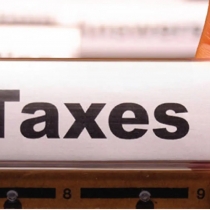
NGOs Told To Renew Permits or Face Closure
By Dennis Katungi
The Minister of Internal Affairs, Gen Jeje Odongo has sent out a stern warning to all NGOs operating in Uganda. Addressing the press at Uganda Media Centre on August 07th, he warned that NGOs that fail to utilize the amnesty extended to them to regularize by September 07th, 2019 will be deregistered, and rendered illegal entities liable to closure, prosecution or both.
Of the 14,207 NGOs known to the NGO Bureau, only 3,810 are operating with valid permits across Uganda. The Minister said that many NGOs have gone defunct over the years, but some still operate without a license or worse still, with fake licenses. The Ministry of Internal Affairs through its NGO Bureau intends to weed out non-compliant NGOs. The window of amnesty runs to 07th September and it is the final call.
It was noted that since 1989, there has not been any verification or validation of the NGO register to establish the exact status i.e. operational, defunct or closed shop NGOs. The current exercise is intended to implement the regulatory framework under the NGO Registration Act Cap 113 of 1989. Communication to this effect is out to all Districts requesting for a list of active Community-Based Organizations (CBOs).
Out of the 128 districts, only 71 have returned the CBO inventory. The NGO Bureau working through Local Governments is following up on those districts that have not submitted recent data. The high level of attrition of NGOs is attributed to inadequate financing, voluntary liquidation, source of funding drying up, issues such as HIV/AIDS receding and end of the conflict in the north.
The validation exercise starts on August 8th, 2019 ending a month later. NGOs can access forms on www.validate.ngobureau.go.ug. A list of both the licensed & unlicensed NGOs is uploaded on the Ministry of Internal Affairs website; www.mia.go.ug NGOs with expired permits who are still operating in the field have a chance to apply for renewal in the window mentioned above. Section 31 (1) of the NGO Act 2016 bars unlicensed NGOs from operating in any part of Uganda.
Uganda is not the only country that regulates NGOs. All commonwealth countries and others do. In the UK, The Charity Commission keeps a register of NGOs which can be viewed online to check that a charity is registered and publishes its annual reports and accounts. It sets out guidance on how NGOs must act, for example, on following certain accounting standards, not being party political and it has the powers to intervene if an NGO breaches guidance.
Recently, Oxfam was called to order by the Charity Commission and warned that it is not more important than the people it serves or the mission it pursues. It was judged that the charity repeatedly fell below standards expected, had a culture of tolerating poor behavior and that it failed to meet promises made on safeguarding people. As a result, Oxfam lost 7000 regular donors when it was revealed that staff sexually exploited victims of the Haiti earthquake. It was also fined 6000 pounds for breaching data protection rules.
Asked how he will monitor compliance, Gen Jeje Odongo alluded to a multi-faceted approach by stakeholders – Police, CAOs, District Security Committees, Electoral Commission will all be working together to make sure that NGOs comply. He gave an example: “We are going into the election cycle, many NGOs seek accreditation for civic education, and elections monitoring, the Electoral Commission will only accredit Licensed NGOs. Government has eyes and ears everywhere, the long arm of the law will reach non-compliant entities.”
Mr Katungi works with Uganda Media Centre
Twitter: @Dennis_Katungi
Links
- 788 views









































Join the conversation